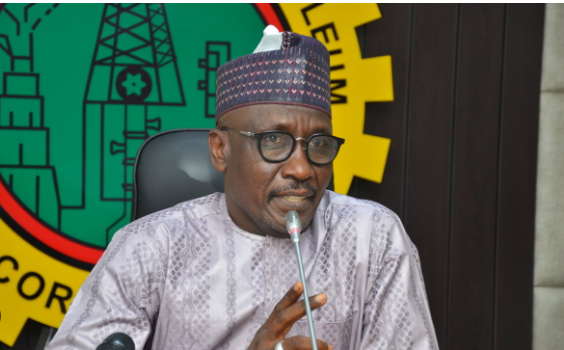The Group Chief Executive Officer of Nigerian National Petroleum Company (NNPCL) Limited, Mele Kyari has said Nigeria would become a net exporter of premium motor spirit otherwise known as petrol by 2024.
He explained that the coming on-stream of refineries would guarantee energy security for the country and ensure growth for the oil and gas industry.
Kyari said this during the ongoing Energy Labour Summit organised by the Petroleum and Natural Gas Senior Staff Association of Nigeria (PENGASSAN) in Abuja with the theme: “Petroleum Downstream Deregulation and Gas Utilisation.”
He insisted that refineries would commence operation before the end of the year to meet the demands of Nigerians for petroleum products.
The NNPC boss pointed out that while it was difficult to actually ascertain the amount of petrol consumed daily in the country; evacuations from depots have dropped by 30 percent since subsidy removal was announced.
He said,
“I have always said that we do not have credible data on petrol consumption in this country and the reason is very simple. Technology absence, cross-border smuggling, and all the other segments of our system that are still not optimum cannot allow us to have a fixed number around consumption. But we know the evacuation.
“Evacuation means every litre of product that leaves the depot is known because the trucks and the volume they carry are known. But once they get out of the depots, the next story is everybody’s guess.”
He explained that since the Petroleum Industry Act abolished the payment of subsidies on February 17, 2022, the government decided to provide a budget to cover the cost until 30th June, 2023.
According to the NNPCL chief, subsidy payments almost bankrupted the company.
He said,
“From 2022 until 29th of May 2023, not a single Naira was paid to the NNPC Limited as cost of subsidies. That means we were carrying the entire cost on the balance sheet of the NNPC. We hold back fiscal revenues, taxes, royalties, including profits, and yet because we are seeing values exceeding N400 billion in a month for subsidy, there is no way these fiscal obligations will cover the cost of subsidy.
“So we were heading towards what we can call, technically, the bankruptcy of NNPC because we were going into negative cash flow. By the end of June 2023, we would have been in negative cash flow. What this simply means is that NNPC would have been bankrupt if that bold decision was not taken by the President.”
He also noted that subsidy was also promoting corruption and fraud in the industry, this is because there was “simply no way you can manage an environment that included shortages and cross border smuggling due to the huge difference between the market value of the product and the price consumers were paying.”
He said the company was investing heavily in facilities for the distribution of Compressed Natural Gas, CNG, to reduce pressure in the demand for petrol.
He pointed out that while the value was the same, the cost of “CNG is cheaper than petrol.”
Kyari said the NNPCL was back to being the sole importer of petrol barely five months after he had said the company would no longer be the sole importer of petrol into the country.
According to Kyari, the NNPCL has once again become the sole importer of petrol since private companies cannot access foreign currency due to shortage issues.
In June 2023, Kyari announced that private companies would have the opportunity to import fuel starting from June 2023, as the NNPCL plans to end crude oil swap contracts and switch to cash payments for fuel imports.
At the time, Kyari said the decision was in line with President Bola Tinubu’s efforts to deregulate the fuel market and alleviate the financial burden on the government.
During the announcement, Kyari said that the market regulates itself after the petrol subsidy removal, so oil marketing companies can actually import products or produce locally.
But speaking at the summit on Monday, Kyari said: “We are the only company importing petrol into the country. None of them can do it today. For them, access to foreign exchange is difficult. We create foreign exchange (FX), therefore we have access to FX, while their access to FX is limited.”
President of PENGASSAN, Comrade Festus Osifo said the removal of subsidies and “the current state of our refineries are of paramount importance, touching the lives of every Nigerian. These are intricate challenges that demand comprehensive solutions, balancing economic viability and the well-being of our populace.”
He observed that recent policies of the Federal Government have “placed untold hardship on Nigerians. Chief of which is the PMS subsidy removal and the floating of the Naira-dollar exchange rate.”
Secretary to the Government of the Federation, Senator George Akume, and the Minister of Labour and Employment, Simon Lalong assured that the government would continue to provide the enabling environment for the growth of the oil and gas industry.


